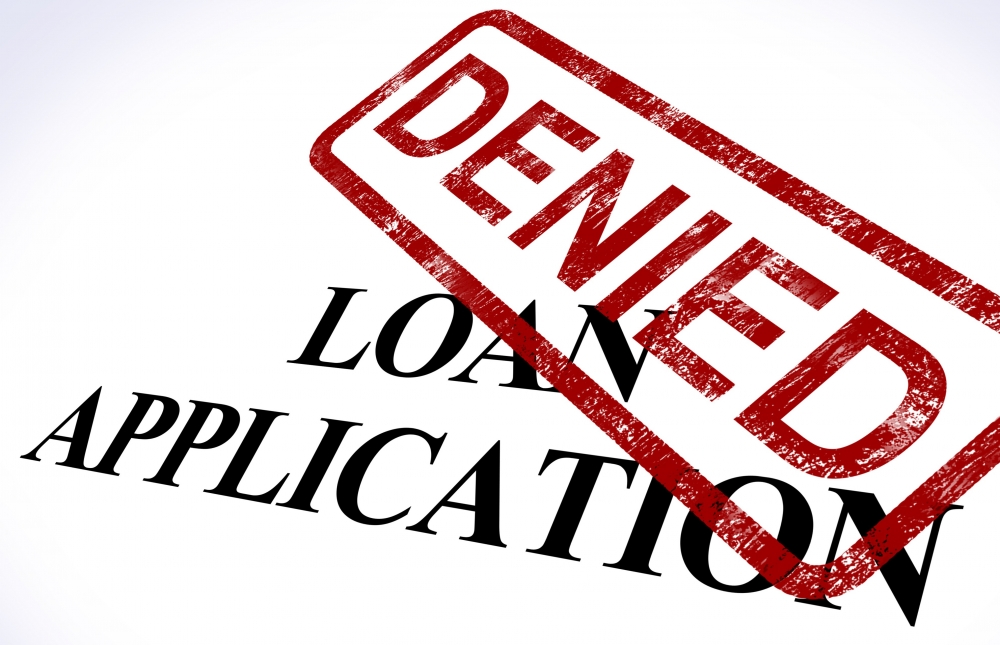
Denied for an SBA Loan? 4 Reasons as to Why
SBA loans are among the best financing options available for small business owners. They come with relatively low-interest rates and long repayment terms. SBA loans offer a financing option to small businesses after other options haven’t panned out. However, many people still get denied an SBA loan. This article discusses why you may be denied an SBA Loan.
Peak Business Valuation, business appraiser, provides SBA business valuations for over 70 SBA lenders across the country. We are happy to connect you with an SBA lender who services your business’s industry and can meet your business needs. We also provide business appraisals for individuals buying a business or selling a business. For questions, schedule a free consultation.
Reasons for Denying an SBA Loan
SBA loans are not for every small business owner. Bank lenders are selective and end up denying hundreds of applications. Large lenders approve roughly 25 percent of SBA Loans. Among regional and community banks, the approval rate is around 49 percent.
The feeling of rejection can sting for the time being, but know that nearly 50 percent of all applicants are not approved. With that knowledge, small business owners should understand why the denial letter was sent. Knowing these things, use this time to address application weaknesses prior to searching for other business financing options. Lastly, remember that although you were denied once, there are other SBA bank lenders and SBA non-bank lenders who may approve the loan. Do not let the sting linger. Move on and try again.
With the feeling of rejection, small business owners should understand the “why” behind the denial. Over the past three years, I have seen four common reasons why borrowers get disqualified for SBA loans.
1. Lack of Collateral
The SBA requires collateral as security on most, if not all, SBA loans. The reason is, secure assets like real estate and equipment are of value to the SBA lender. This is because a lender can easily sell these to satisfy the debt balance should the guarantor of the loan default. For instance, when a home buyer applies for a conventional mortgage, the home acts as collateral in case of default.
There are very few instances where approval of 100% financing occurs without collateral. According to the SBA, “the SBA will generally not decline a loan when the inadequacy of collateral is the only unfavorable factor.” In other words, the rejections of a small business owner may not be on the sole basis of insufficient collateral.
2. Lack of Strong Cash Flows
Cash flow is one of the first items that bank lenders observe when deciding whether or not to approve the loan. If cash flow is strong, there may be no need for collateral. However, there are very few business models that have strong cash flows.
Another important point on cash flow is that cash from the business is used to not only cover the expenses of the business but the SBA loan payments in question. It is not only important to pay back the loan but to have a sufficient cushion if there is a downturn in the business.
Many businesses fail because of poor cash flow management. However, there are ways to improve cash flow management. Through the use of accounting software, a small business owner can monitor cash flow on a daily and weekly basis and can discover ways to improve the cash conversion cycle. Through a business appraisal, Peak Business Valuation can help you understand your current cash flow and how to improve it.
3. Poor Credit
The SBA does not have a minimum personal credit requirement. However, most bank lenders expect good to excellent credit. In response to that, most lenders will want to see a credit score of 680+. This exemplifies the borrower has a history of paying bills on time. In the case of many small business borrowers, adverse events for both personal and business credit histories are common. Bank lenders will inquire as to these events in order to ascertain a plausible explanation and whether or not the borrower acted responsibly and in good faith.
If a low credit score results in a denial of an SBA loan, there are many options for borrowers to review and take steps to repair a credit score.
4. Risky Industry
Depending on the bank, some industries are simply considered “risky”. An industry is considered risky for a number of reasons. In addition, if the business in question operates in certain “vice” industries, such as gambling, a borrower could potentially face extra hurdles. When selecting an SBA lender, inquire as to whether or not they serve the industry in which the business operates. If not, move on and find a different SBA lender.
There are several SBA non-bank lenders that prefer individuals that were denied at least once. If you need assistance, feel free to reach out. Peak Business Valuation, business appraiser, is here to help. No business should have to struggle because of a lack of financing. Schedule a free consultation.
Summary
Denial for an SBA loan isn’t uncommon. However, preparation for and after can help you increase the chances of approval. As a business appraiser, Peak Business Valuation can help in a variety of ways. First, we can help you find an SBA lender who services your industry/business. In the SBA loan process, the lender is often required to obtain an outside opinion of the value of the business. Peak Business Valuation provides these SBA business valuations for SBA lenders across the country. In addition, Peak Business Valuation can help you understand current cash flow and how to improve it. We are happy to answer any questions you have. Schedule a free consultation today using the link below.
Schedule Your Free Consultation Today!
